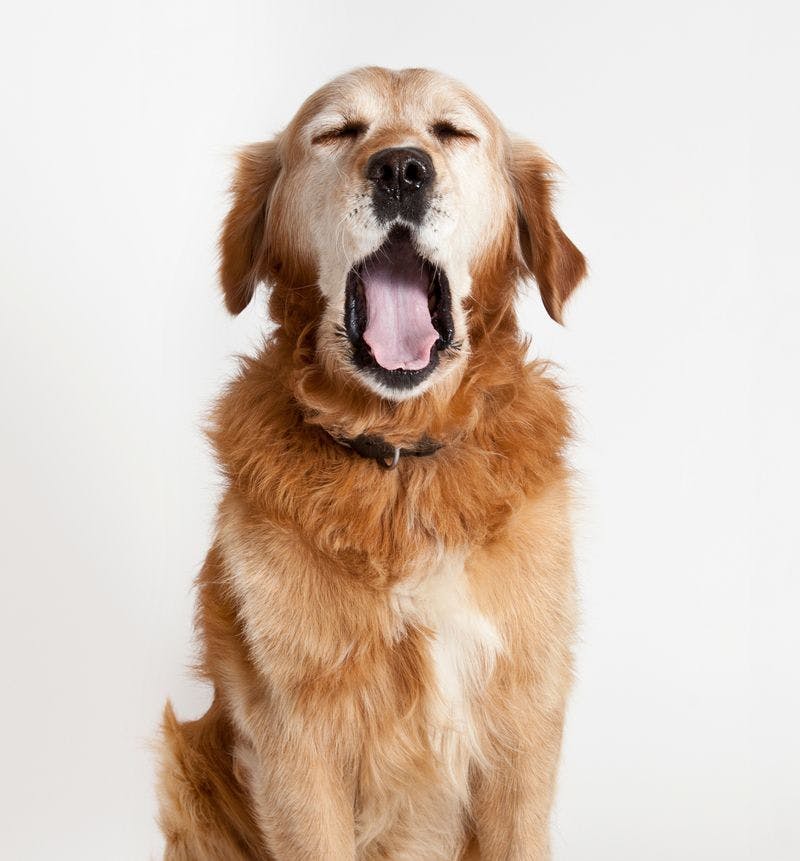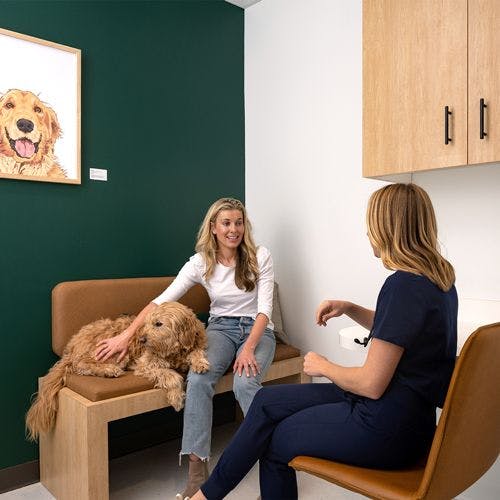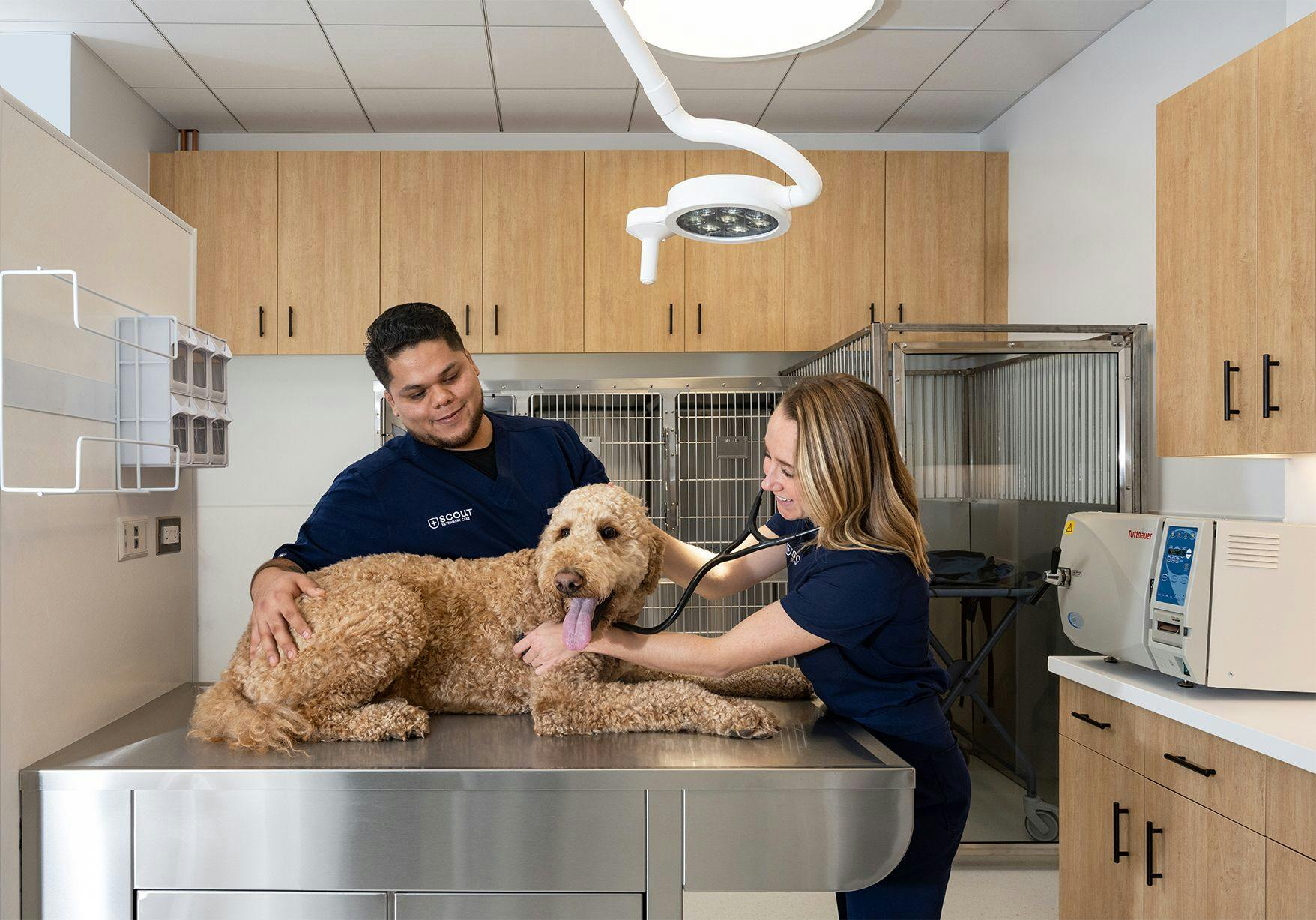

Hi there! We are sorry you are here but happy to help. Coughing in dogs can be nerve racking. Anything that irritates the airways can cause a cough.
What’s going on with your dog?
Start looking for other signs of distress. Is your dog also breathing differently than normal?
Check a respiratory rate.
Watch your dog breathing at rest. Set a timer for a minute and count how many times you see their chest move up and down. If you count more than 40 that is not normal.
Are there any other signs that they are not themselves? Have they stopped eating? Are they lethargic?
If they are off in more ways than one it can mean that their health is more seriously impaired.


Here’s what you can do at home...
Look around for any respiratory irritants.
- Have you been burning candles?
- Have the windows been open or closed more than usual?
- Any diffusers or misters going in your home?
Even if these things are not the cause of your dog’s cough, they could make it worse. Remove anything from the environment that could be an irritant.

Does your pet need Urgent Care?
Yes! Breathing is a vital function and any problem with the respiratory system could become serious quickly. We hope nothing serious is found but this is one case where you are better off seeing a veterinarian ASAP. A quick note on Kennel cough (Bordetella). This is one of the more common causes of a cough especially in social dogs with lots of interaction with others. This disease typically resolves on its own but is indistinguishable from other more severe infections. It is still always best to have an evaluation if you are noticing a cough.
What can you expect from your visit?
Your Scout veterinarian may recommend:
Triage: If the Scout team has any concerns that your dog is in trouble, they will do a quick (STAT) assessment to ensure they are stable. There are also several infections that can cause a cough. Many of these (such as Kennel cough) can be contagious. The Scout team may escort you and your pup into a special room near the front of the clinic to help seclude them from other pets to be safe.
X-rays: This is the best way to look at the lungs and see if there are any signs of infection, heart problems, asthma, lower airway disease, or masses.
Bloodwork: It’s unlikely that bloodwork will help determine the exact cause of the cough, but many medications/treatments can have impacts on the whole body. Performing bloodwork may be recommended if your Scout veterinarian is concerned that there may be something else going on or if they want to safely prescribe a medication.
PCR testing: Your Scout veterinarian may recommend taking a swab to look for a number of common respiratory infections in dogs. These tests can take several business days to get back from the lab.
Treatments: Your Scout veterinarian wants your pet to feel better just as much as you do! They may recommend fluids under the skin to help with dehydration and medications to directly treat the cause or symptoms. It is important to know that some treatments may take time to kick in!
Follow up appointments: Follow up appointments depend on what you uncover during your visit and results from testing that was performed. If you have a primary care veterinarian that you normally see, you can choose to see them or come back to see Scout.
Remember that you are the best advocate for your pet. If you think it’s a problem, it probably is! We are here for you in your time of need.
Next available appointment in Chicago:
Lincoln Park
2369 N. Lincoln Ave. Chicago, IL 60614
773-676-8166
OPEN 7 DAYS A WEEK 10A-8P
West Loop
112 N. May St. Chicago, IL 60607
773-676-2988
OPEN 7 DAYS A WEEK 10A-8P
Old Orchard
Coming Soon!
We're excited to bring Skokie convenient, on-demand quality pet care.
Stay tuned for 2025 opening dates
COMING SOON!
See Scout today.
Book an appointment online up to 36 hours in advance.






